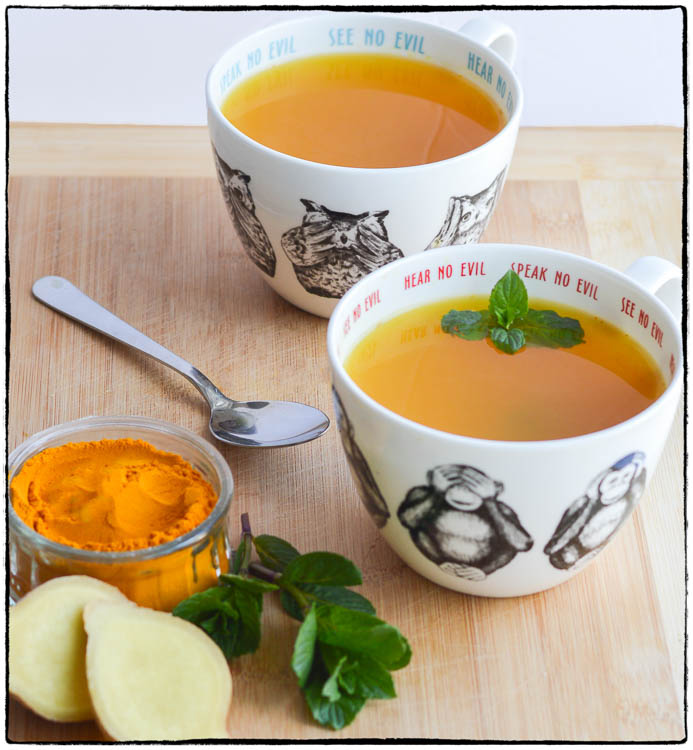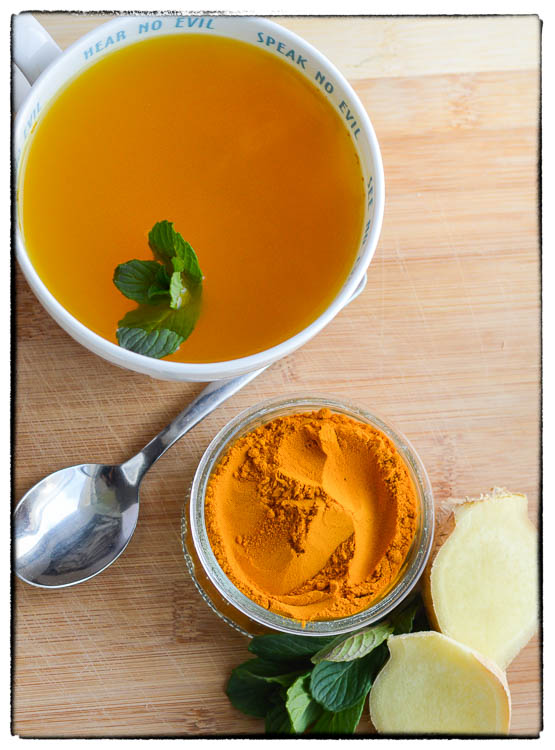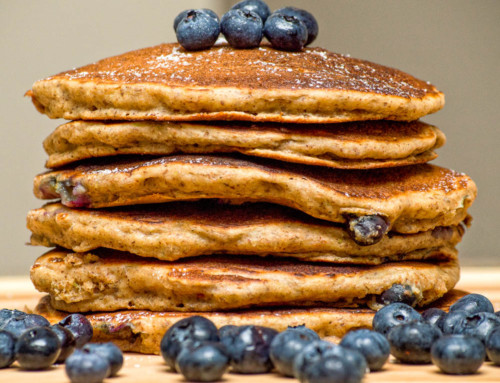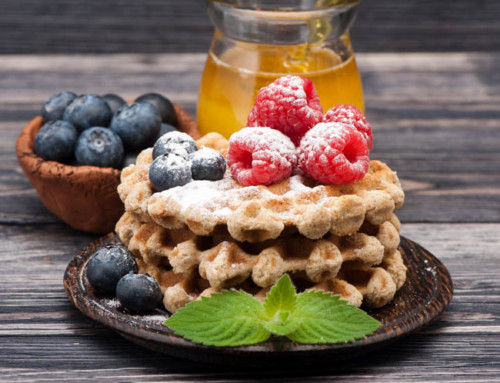I had my first few non-stop sneezes a few days ago giving way to the fact that spring is in the air. A day later, it was a full on internal battle between my body and tree pollen (my unexpected enemy, as I really am a tree hugger). Runny nose, itchy watery eyes, congested sinuses and scratchy throat started to appear out of the blue, knocking me right into bed—with a very uncomfortable rest if I may add. It’s hard to get some sleep when your nose is plugged and throat feels like sandpaper.
So, I’m fighting back strong and hard with my well tested and tried Ginger and Turmeric Tea. As a long-lasting seasonal allergy sufferer (since my teenage years), I know a thing or two about this condition. I’ve taken most antihistamines and even cortisol sprays for relief but, with little to no avail. Over the years, medication after medication have ceased their relief effect. If you’ve read my story at The No-Diet Book page, you are aware of great discomfort and poor-quality of life that my chronic allergies caused leading to my Stronger Leaner Faster Her lifestyle change.
Seasonal allergies are more commonly referred to as “hay fever” affect approximately 10-30% of the world’s population. However, within my immediate social circle these numbers continuously increase as one more of my friends develops the common symptoms with each successive season. Perhaps it’s the rapid weather changes, changes to food environment or, overall increase in stress level—it is apparent that allergies are not going away anytime soon and we need an effective method to mange them.
There is a misconception that allergy sufferers have a weak immune system. On the contrary, most of us actually have a hyperactive or hypersensitive immune system. Hay fever sufferers, respond violently to most minute irritants—pollen being one of them—that is harmless to the body. The most prominent theory as to why our system has become this way is due to lack of exposure to bacteria. We live in a clean environment and never developed the need to engage our immunity.
From my personal experience, having been born and raised in India, clean environment was the furthest from my reach. That being said, my allergies started soon after immigrating to Canada, as a teenager. Growing up, we had minimal knowledge about the dangers of antibiotics, as such medication was commonly prescribed and consumed at the first sign of seasonal flu. Repeated antibiotic cycles led to poor gut health further distorting overall immunity. Adding further insult to injury, like a typical teenager, my diet consisted of frequent visits to local fast food restaurants thus worsening the overall situation.
Seasonal allergy response and recovery, along with digestive health has a lot to do with diet and exercise. I’m a believer in the above stated hypothesis that our immunity lives in the gut, and it’s the microbes that greatly contribute towards balancing the immune system.
Once I gave into the true cause of my detracting health—poor nutrition—I’ve made it my mission to seek out foods with specific healing properties. Hence, the ginger and turmeric tea recipe I share with you below. But first, I want to discuss the significance of ginger and turmeric and why I utilize them to heal the body from a violent seasonal allergic response.
Inflammation
Seasonal allergies are an assault on your body, resulting in fatigue. Much of the discomfort symptoms like runny nose, itchy watery eyes, congestion and scratchy throat are due to inflammation caused by the body’s attempt at self-protection. The body is trying to remove harmful stimuli including damaged cells, irritates, or pathogens in order to begin the healing process. Inflammation is part of the body’s healthy immune response.
Inflammation can be reduced with medications. Either by blocking one or more of the enzymes or chemicals involved, or interfering with the pain receptors to reduce pain. There are also natural herbs and spices that have anti-inflammatory and anti-oxidant properties. They reduce or heal the body from inflammation.
Ginger or ginger root can be used as a medicine or a spice. Historically, it has been used to relive gastrointestinal problems and pain. Recent discovery of the therapeutic properties of ginger include anti-oxidant effects, ability to inhibit the formation of inflammatory compounds, and direct anti-inflammatory effects. These are similar effects to the medicines taken to combat hay fever symptoms mentioned above. But, the best benefit for using herbs and spices to combat an illness is that they are natural and less likely to cause severe problems, often have fewer side effects and are more cost effective.
- 6-ginerol is an anti-oxidant compound that offers free radical protection. Free radicals are released due to cell damage and in excess have adverse effect on our health.
- Ginger’s anti-inflammatory effectiveness is shown to suppress pro-inflammatory compounds (cytokines and chemokines) along with others. These are released by the immune system to fight and clear up harmful agents from the body, but as we know allergy antigens are like pollen—harmless.
- In addition, ginger contains very potent anti-inflammatory compounds called gingerols. Research shown this root can also reduce inflammation, pain and/or swelling due to muscle discomfort.
Turmeric is a plant of the ginger family that has been linked to contain anti-inflammatory properties. A special compound in turmeric—curcumin is a polyphenol which has remarkable set of potential health benefits. These benefits include regulation of inflammation and oxidation.
A study by Percival et al. concluded number of herbs and spices, including ginger and turmeric to have beneficial response to oxidative stress and inflammation. Their study involved participants taking capsules with the herb/spice of interest for 7 days and testing their blood to see if the DNA was susceptible to damage—known as oxidative damage. The study results showed that by consuming both Ginger and (heat-treated) Turmeric, even taken in normal daily amounts, protected DNA from damage. This is the work of anti-oxidants as found in berries.
As for inflammation Percival et al. showed ginger decreased expressions of interleukin-6 (IL-6—pro-inflammatory cytokine). Turmeric significantly reduced tumour necrosis factor-alpha (cytokine involved in inflammation).
With greater whole foods research coming to light, common herbs and spices are being showcased to contain numerous health benefits. I have noticed this from personal trial and error. As I write this today, I’m still a little stuffed but fully cognitively active. I’ve been drinking my ginger turmeric tea 2-3x a day and feeling better with each cup.
Heal the Body — Ginger and Turmeric Tea Recipe
This recipe comes via my Indian contacts. Let’s face it, when it comes to homeopathy, naturopathy and Ayurveda, no one does it better than the Asians—as the roots of such treatments stem from there.
I have modified the recipe with the addition of mint to make it more palatable to western taste. Mint also has many beneficial health properties and easy to grow in any little batch-like pot.
3 cups of water
1 tbsp freshly grated ginger with the juice and flesh
1 tsp of turmeric powder (organic if you can get it)
few fresh mint leaves (optional)
1 tsp natural, local honey (optional)
Using a small metal pot, try not to use non-stick, add cold tap water. Grate the fresh ginger root right into the pot that will be used to make the tea. This way you can catch all the fresh ginger juice as well. Add in turmeric powder and fresh mint leaves (tear them with your hands or grind them with a mortar and pestle). Cover pot and bring to a boil. Turn off the heat and let it steep for 5-10 minutes.
Strain and enjoy warm.
I prefer not to add any sweetener to this as I drink this nightly before bed. I stop consuming caloric food around 6pm and usually have my tea around 8pm.
If you desire, you can add 1 tsp of natural, local honey to the warm tea. Natural local honey has also been linked to allergy relief. Don’t add it to the boiling pot as it will destroy the nutrients.
Please try this recipe and leave us a comment on how you feel! From personal experience and what I’ve heard from others, you will notice significant decrease in symptoms within a week of regular use. And soon, the symptoms will start to disappear all together with regular consumption.
References:
Immunobiology: The Immune System in Health and Disease. 5th edition. Relevant chapter at: https://www.ncbi.nlm.nih.gov/books/NBK27112/
Ohnmacht et.al. The microbiota regulates type 2 immunity through ROR(alpha)t+ T cells. Science. 28Aug2015. Short summery at: https://medicalxpress.com/news/2015-07-role-microbiota-allergies.html
Percival et.al. Bioavailability of Herbs and Spices in Humans as Determined by ex vivo Inflammatory Suppression and DNA Strand Breaks. Journal of the American College of Nutrition, Vol. 31, No. 4, 288–294 (2012)
http://www.medicalnewstoday.com/articles/248423.php?page=3
Learn more about benefits of ginger: http://www.whfoods.com/genpage.php?tname=foodspice&dbid=72
Learn more about benefits of turmeric: http://www.whfoods.com/genpage.php?tname=foodspice&dbid=78







